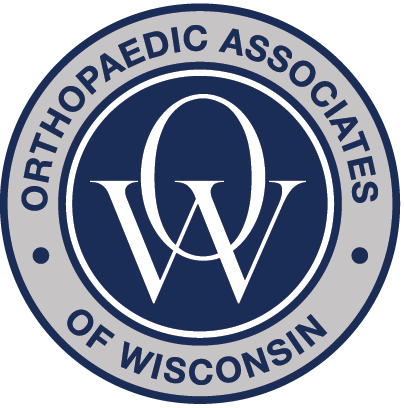WHAT TO KNOW: BEFORE AND AFTER SURGERY
Welcome to Your Surgery Guide
Thank you for choosing The Orthopaedic Surgery Center. Our team is dedicated to making your surgical experience safe, informed, and comfortable. This guide will walk you through what to expect before, during, and after your surgery.
Your Surgery Center Care Team
Surgeon: Performs your surgery and oversees your recovery.
- Anesthesia Team: A board-certified anesthesiologist and a Certified Registered Nurse Anesthetist (CRNA) or Certified Anesthesia Assistant (CAA) will manage your anesthesia plan.
Primary Care Provider: You’ll need medical clearance within 30 days of surgery.
Nursing Team: Includes Registered Nurses, LPNs, and CNAs who care for you before and after surgery.
Joint Replacement Nurse Navigator: Your go-to contact for questions, coordination, and guidance throughout your joint replacement.
Preparing Your Home for Recovery
General Living:
Remove rugs, cords, clutter, and pet toys from walking paths.
Rearrange furniture to allow for walker use.
Add nightlights in hallways and bathrooms.
Set up a supportive chair with armrests and back support.
Arrange pet care and home support from friends or family.
Kitchen:
Shop and prep meals ahead of time.
Stock frozen or easy-prep meals.
Place pots, dishes, and utensils within easy reach.
Buy reusable ice packs or cold therapy units.
Bathroom:
Consider a toilet riser and shower chair.
Use non-slip mats.
Add a grab bar in the shower.
Install a nightlight.
Bedroom:
Set up a sleeping area on the main floor if needed.
Make sure clothes are easy to access and easy to put on.
Clean your sheets and laundry before your return home.
Outdoors:
Plan for help with mowing, snow removal, or de-icing.
Make sure walkways are clear and safe.
Arrange how you’ll get in and out of the house after surgery.
Transportation:
You must arrange for a responsible adult to drive you home after surgery and assist you during your first days at home.
Pre-Surgery Checklist
Complete required lab work.
Attend your pre-surgical nurse call.
Prepare your home as listed above.
Make sure someone is staying with you after surgery.
Schedule your post-op appointment and physical therapy.
Review any insurance-related questions or coverage for equipment.
Have a valid photo ID and insurance cards ready on surgery day.
Preparing Your Skin and Preventing Infection
You will receive CHG (Chlorhexidine Gluconate) soap to cleanse your skin before surgery.
More in-depth instructions are included here.
Instructions:
Shower the evening before and the morning of surgery.
Wash normally with regular soap first, then use CHG soap from the neck.
Avoid using CHG on your face, genitals, or any open wounds.
Let it sit for 2 minutes, then rinse lightly.
Dry with clean towels and sleep in freshly laundered pajamas and sheets.
Do not apply lotions, deodorant, or perfume.
Important Notes:
Avoid shaving near the surgical site for 3 days prior.
Notify staff if you experience any skin reaction to the soap.
Surgery Day Overview
Before Surgery:
You’ll be taken to a pre-op room to get ready.
Your surgeon and anesthesiologist will review your plan and mark the surgical site.
Your vital signs and history will be reviewed.
After Surgery:
You will recover in a monitored recovery room.
Your family will receive updates and be allowed to visit once you’re stable.
A therapist will assist you in standing, walking, and beginning movement.
You’ll receive home care instructions and a pain prescription.
You will be discharged once medically stable.
Post-Surgery at Home
Pain is expected but will be managed by your care team.
Do not take non-prescribed pain medications unless approved.
Ice the surgical site (15 minutes, 4x daily).
Stay hydrated and eat fiber-rich foods to avoid constipation.
Avoid excessive daytime sleep to support nighttime rest.
Report signs of infection, such as fever, redness, drainage, or swelling.
Seek emergency help for chest pain, breathing difficulty, or confusion.
Swelling and bruising are normal and may last 1–2 weeks.
Pain Management at Home
Pain is personal — we use a 0–10 scale to help track your comfort level.
Take medication before your pain becomes severe.
Use techniques like deep breathing, imagery, and music.
Ice therapy can reduce swelling and discomfort.
Take medication before physical activity or therapy sessions.
Pain can’t always be eliminated, but we aim to keep you comfortable.
Please look at our Pain Management sheet for detailed information on managing pain after surgery.
Bracing, Medical Equipment & Aids
You may benefit from:
Walkers, crutches, or canes
Raised toilet seats and grab bars
Shower benches
Cold therapy units
Stocking aids, leg lifters, and reachers
To learn more about equipment that may support your recovery, visit our Durable Medical Equipment (DME) page or call 262-303-5055 ext. 5049 to order equipment.
Physical Therapy
Physical therapy helps restore strength, motion, and confidence.
Therapy is usually prescribed 2–3 times per week. You may start within a few days of surgery. Some patients may qualify for home therapy initially.
OAW Therapy Locations:
Pewaukee
Brookfield
New Berlin (OAW Sports Complex)
- Germantown
- Oconomowoc
To schedule, call 262-303-5055.
Frequently Asked Questions
For more answers to common questions, please visit the FAQ section of our website.
Contact Information
The Orthopaedic Surgery Center
N15 W28300 Golf Rd, Pewaukee, WI 53072
Phone Numbers
Main: 262-303-5000
TOSC pre-admit nursing (ext. 5004)
Therapy Department (ext. 3001)
Clinical Nursing Triage (ext. 3003)
Durable Medical Equipment (ext. 5049)
Nurse Navigator: 262-304-0405

